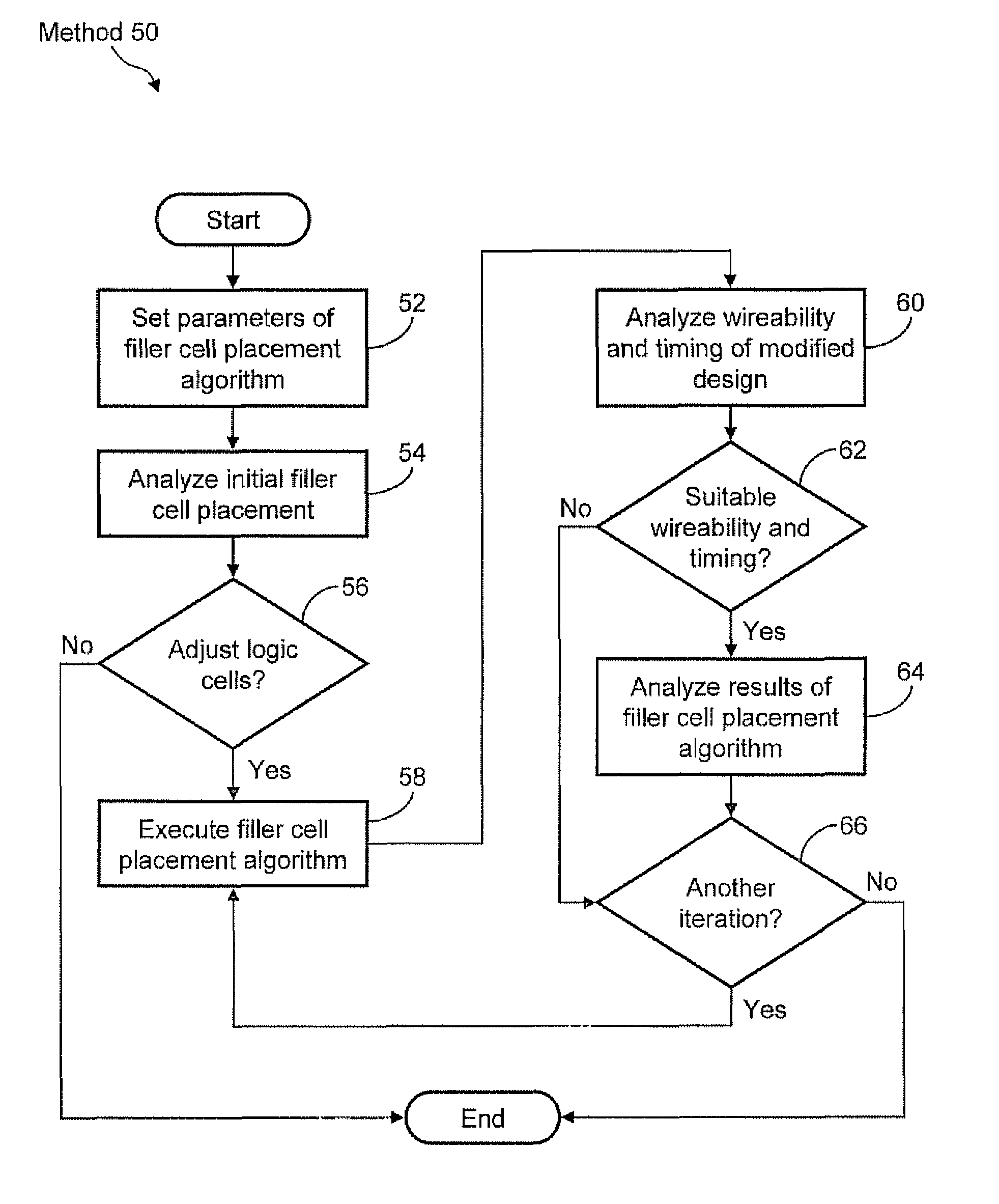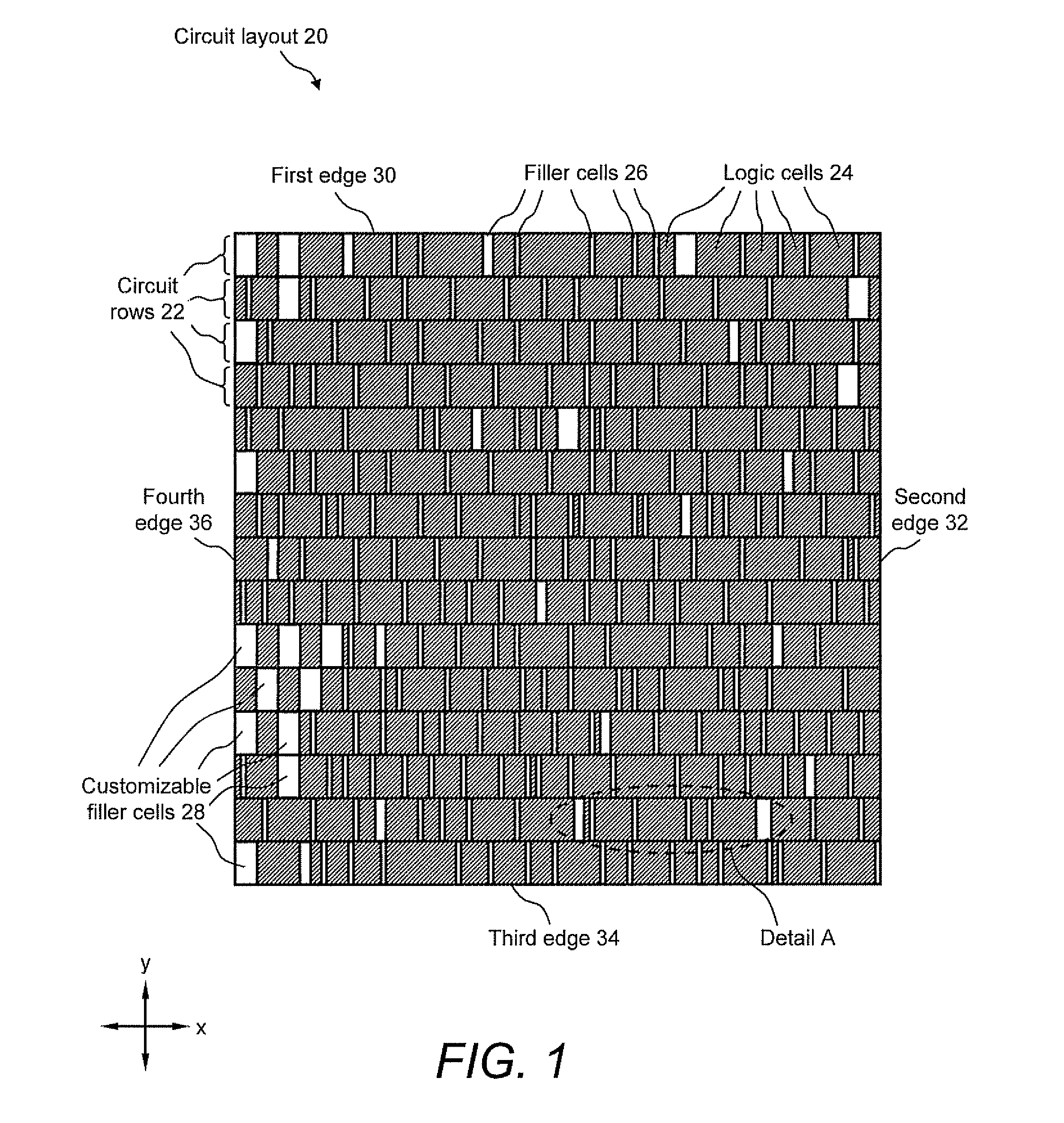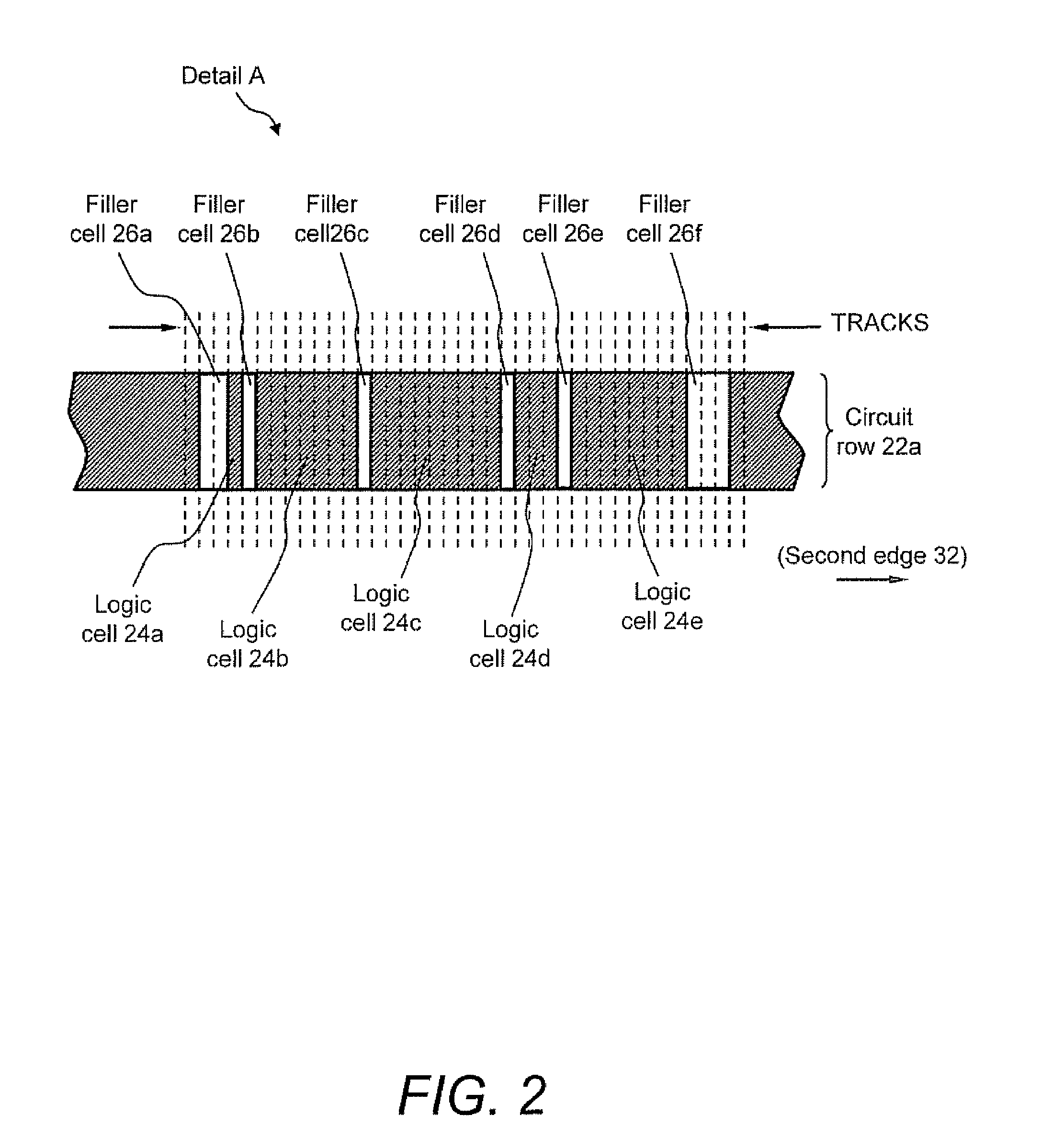Method of optimizing customizable filler cells in an integrated circuit physical design process
a technology of integrated circuits and filler cells, applied in computer aided design, program control, instruments, etc., can solve the problems of inability to control the location of potential customizable filler cells, inability to incorporate customizable filler cells within the overall circuit design, and gaps or empty spaces between certain adjacent logic cells, so as to reduce the traceability of electronic messages
- Summary
- Abstract
- Description
- Claims
- Application Information
AI Technical Summary
Benefits of technology
Problems solved by technology
Method used
Image
Examples
Embodiment Construction
[0017]FIG. 1 illustrates a circuit layout 20, which is a representative of arbitrary circuit layouts that result from a standard logic synthesis operation. Circuit layout 20 includes a plurality of circuit rows 22 that each further includes a plurality of logic cells 24 that have a plurality of filler cells 26 and / or customizable filler cells 28 distributed randomly therein. The collective arrangement of circuit rows 22 forms the overall physical design of circuit layout 20, as shown in FIG. 1. As a result, circuit layout 20 has a first edge 30, a second edge 32, a third edge 34, and a fourth edge 36. Those skilled in the art will recognize that circuit layout 20 may be formed, alternatively, of circuit columns or other regions. The formation of circuit layout 20 by use of circuit rows 22 is exemplary only, and the method may be implemented with respect to regions in the circuit layout other than circuit rows.
[0018]Logic cells 24 represent a collection of specific logic functions, a...
PUM
 Login to View More
Login to View More Abstract
Description
Claims
Application Information
 Login to View More
Login to View More - R&D
- Intellectual Property
- Life Sciences
- Materials
- Tech Scout
- Unparalleled Data Quality
- Higher Quality Content
- 60% Fewer Hallucinations
Browse by: Latest US Patents, China's latest patents, Technical Efficacy Thesaurus, Application Domain, Technology Topic, Popular Technical Reports.
© 2025 PatSnap. All rights reserved.Legal|Privacy policy|Modern Slavery Act Transparency Statement|Sitemap|About US| Contact US: help@patsnap.com



